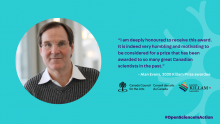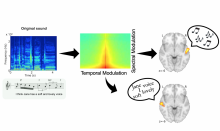C. L. de Carvalho-Heineken Prize recognizes his seminal work in the cognition of music
Cognitive neuroscientist Robert Zatorre has been awarded the C.L. de Carvalho-Heineken Prize in Cognitive Sciences.
The Heineken Prize–given every two years to five different researchers–is considered the most prestigious international science prize in The Netherlands and includes a monetary reward of US$200,000. Previous winners include Nancy Kanwisher of MIT, and Stanislas Dehaene of the Collège de France.














